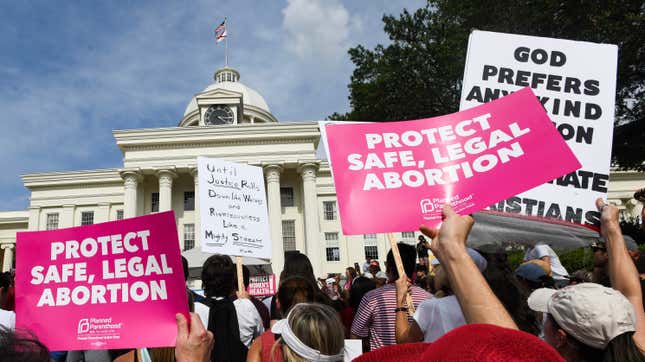

Like all of the draconian abortion bans passed by Republican-led states this past year, Alabama’s almost near-total ban has been temporarily blocked from going into effect by a federal judge.
The clearly unconstitutional ban, which was signed into law in May by Governor Kay Ivey and slated to go into effect on November 15, made it a felony for a doctor to perform an abortion, including in cases of pregnancies resulting from rape or incest. It was quickly the target of a lawsuit brought by the American Civil Liberties Union’s Alabama chapter as well as Planned Parenthood Southeast Advocates. On Tuesday, District Judge Myron Thompson blocked it from being implemented while the lawsuit winds its way through the courts.
-

-

-

-

-

-

-

-

-

-

-

-

-

-

-

-

-

-

-

-

-

-

-

-

-

-

-

-

-

-

-

-

-

-

-

-

-

-

-

-








































